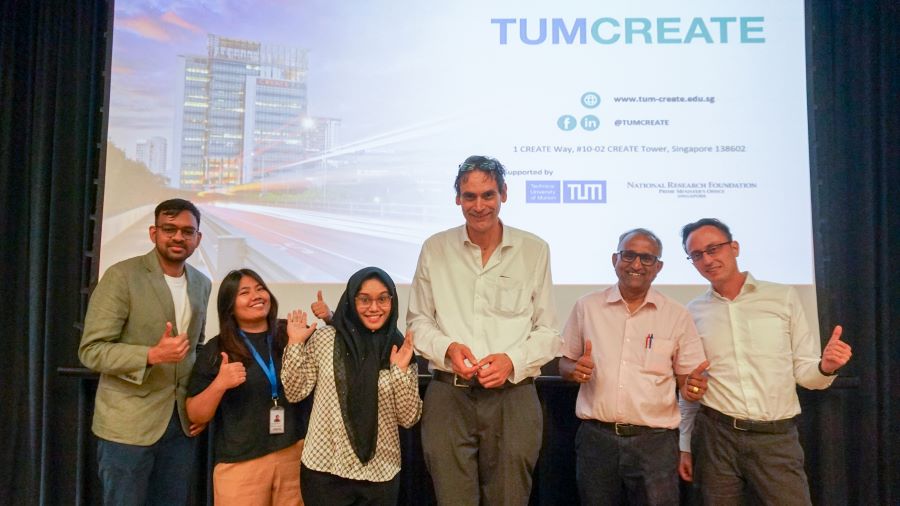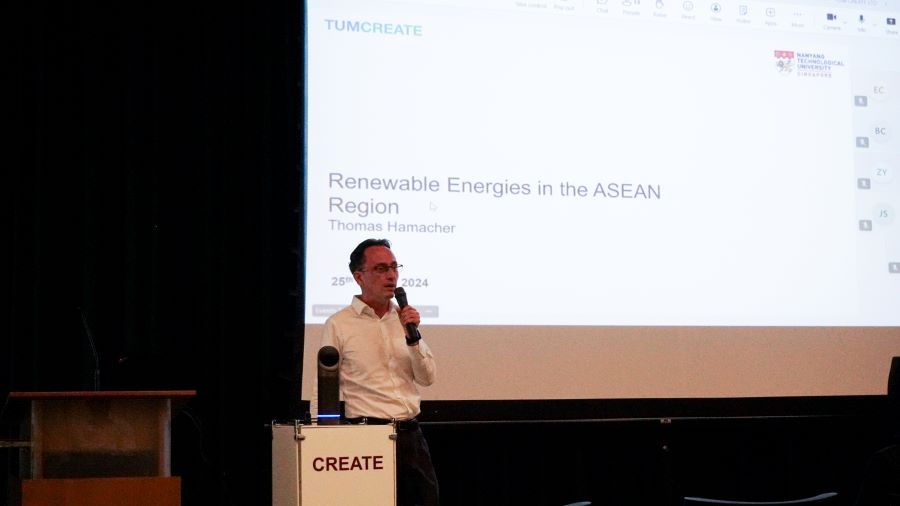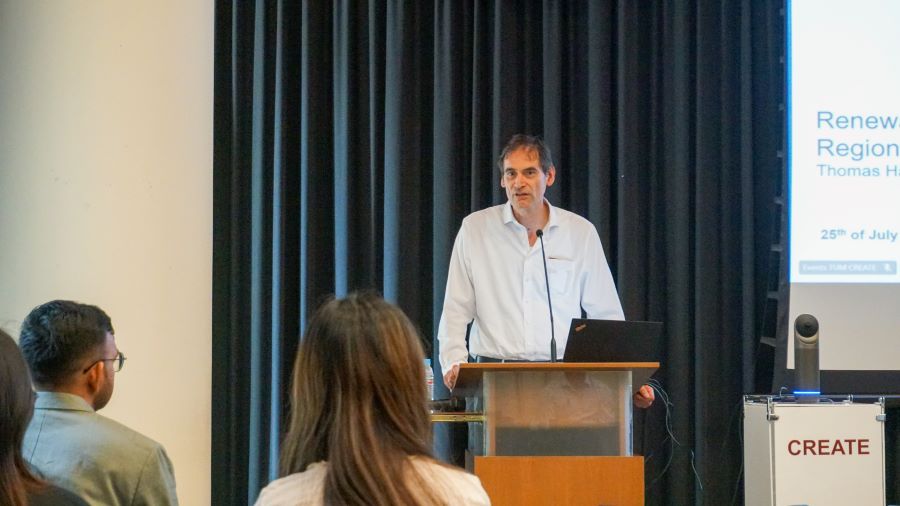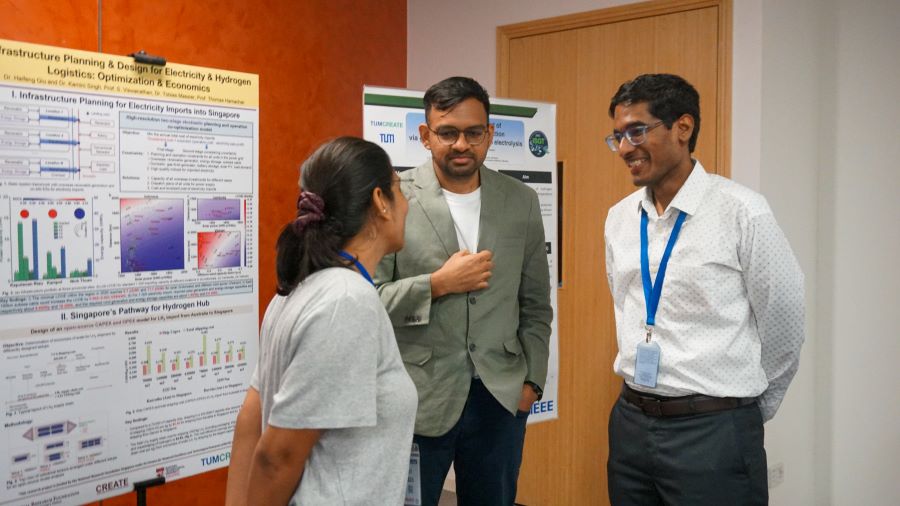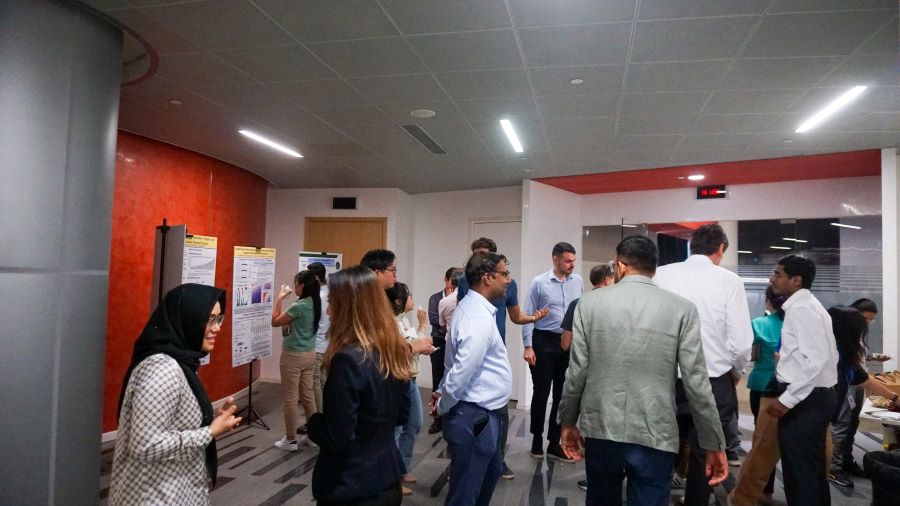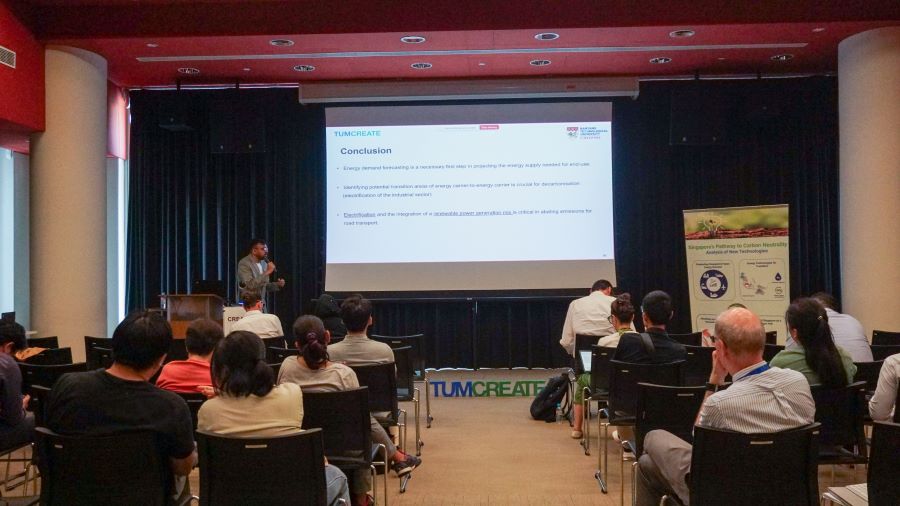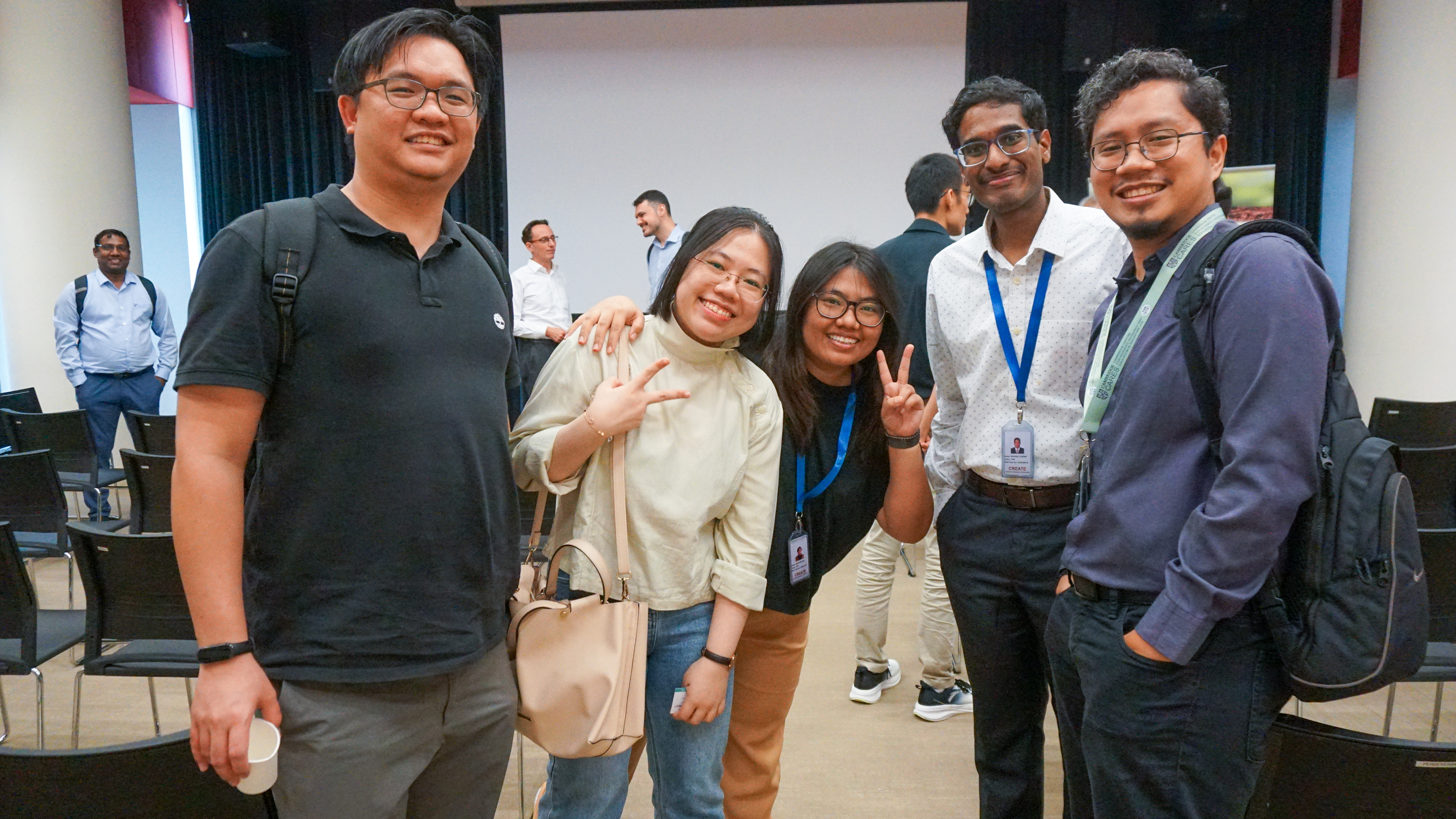- AquaCycle
- Proteins4Singapore
- Singapore's Pathway to Carbon Neutrality
- CellFACE
- LightSPAN
- Computational Modelling Group
- Energy and Power Systems Group
- SITEM - Singapore Integrated Transport and Energy Model
- MoVES (Mobility in Vehicular Environments at Scale) lab
- Projects
News
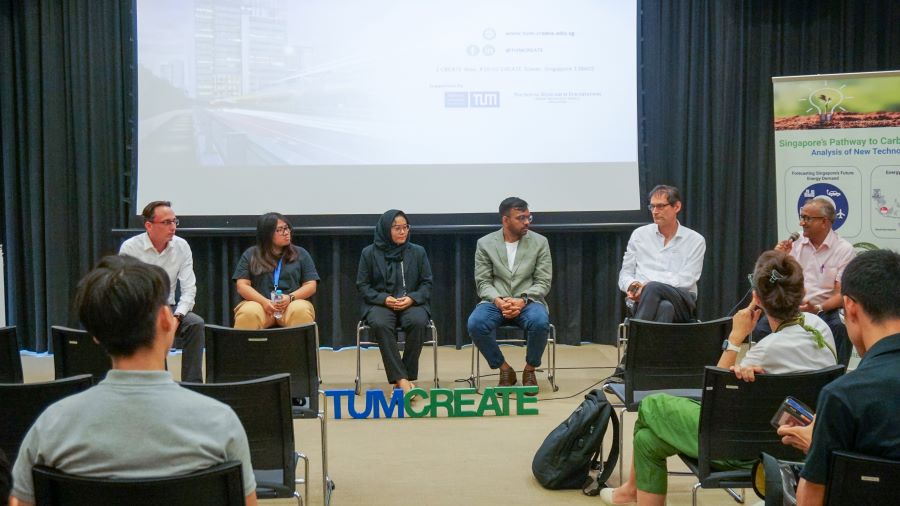
TUMCREATE EPSG Research Team Hosted Workshop on Renewable Energies in Southeast Asia
06.08.2024The Energy and Power Systems Group (EPSG) at TUMCREATE hosted a workshop on ASEAN’s transition to a low-carbon future using renewable energy. This is part of TUMCREATE’s research project on Singapore’s Pathway to Carbon Neutrality in collaboration with Nanyang Technological University (NTU).
Both invited and internal speakers addressed current and future challenges to reach the goal of climate neutrality. Requirements for a low-carbon energy system in the Association of Southeast Asian Nations (ASEAN) were also discussed.
.jpg)
Shiddaling Devihosur, a research associate at TUMCREATE, who forecasts Singapore’s and ASEAN’s future energy demand as part of his work package shared about “Forecasting ASEAN’s Electricity Demand”.
He noted, “The electricity demand across ASEAN is expected to triple by 2050. This is driven by population growth and economic prosperity. The transition from petroleum to electric vehicles is an essential first step towards decarbonising our road transport sector. The utilisation of green electricity would further reduce carbon emissions significantly in this sector."
ASEAN’s path to a low-carbon future is reachable in the years to come.
.jpg)
Fellow research associate and teammate ShweSin Han shared, “Reaching 80% or 95% CO2 reduction in the power sector by 2050 is possible by harnessing ASEAN’s renewable potentials.”
“Introducing new photovoltaic (PV) systems or H2 fuel reduces electricity curtailment and lowers energy system costs. PV, as the leading renewable technology in the region, can be more effectively utilised. This together with hydrogen can serve as an alternative energy carrier, allowing countries with limited renewables to diversify their electricity generation mix,” said Han who presented “A Low-Carbon Power System for ASEAN with Renewables”.
The session concluded with an engaging round-table discussion that included all speakers and the audience.
Thank you to Dr Zulfikar Yurnaidi from ASEAN Centre for Energy, Associate Professor Azmi from Universiti Teknologi MARA and Professor S. Viswanathan from Nanyang Technological University Singapore for sharing valuable insights and to all participants for joining the discussion.
We look forward to future sessions and fostering interdisciplinary discussions with experts from diverse fields within CREATE building and across various research institutions.
Find out more about TUMCREATE's research on EPSG here.
Contact:
Corporate Communications TUMCREATE
1 CREATE Way
#10-02 CREATE Tower
Singapore 138602Media and Communications
communications@tum-create.edu.sg


